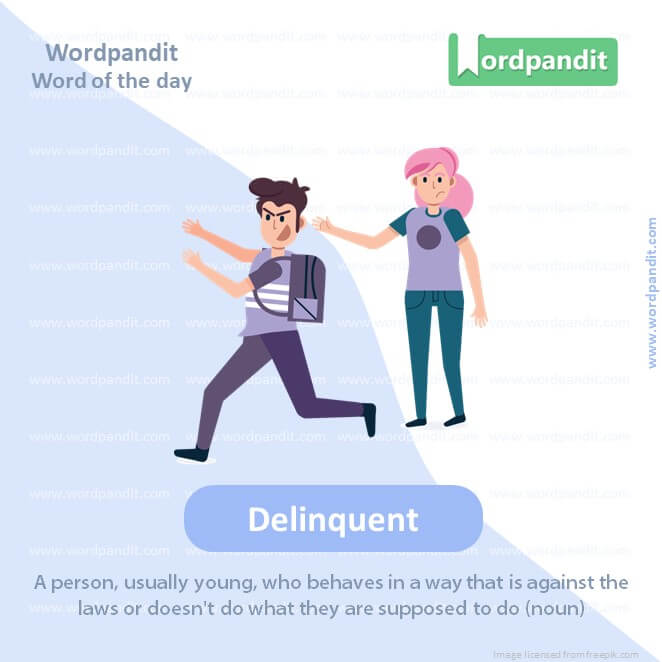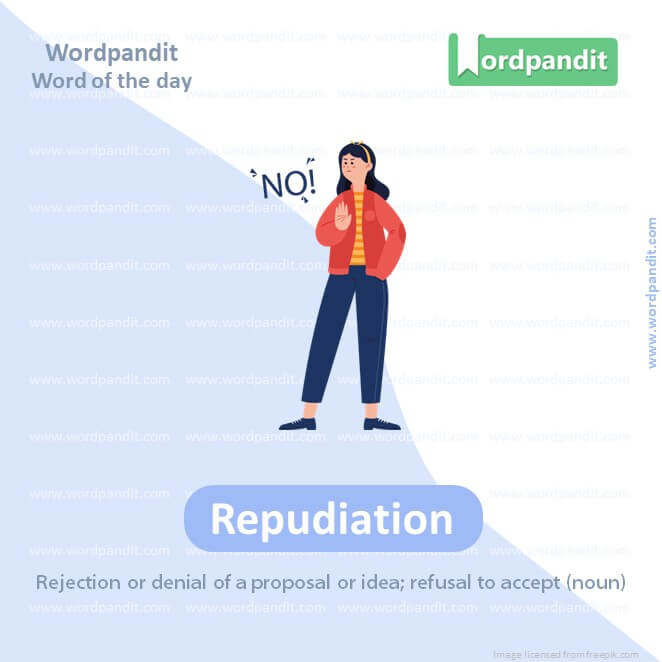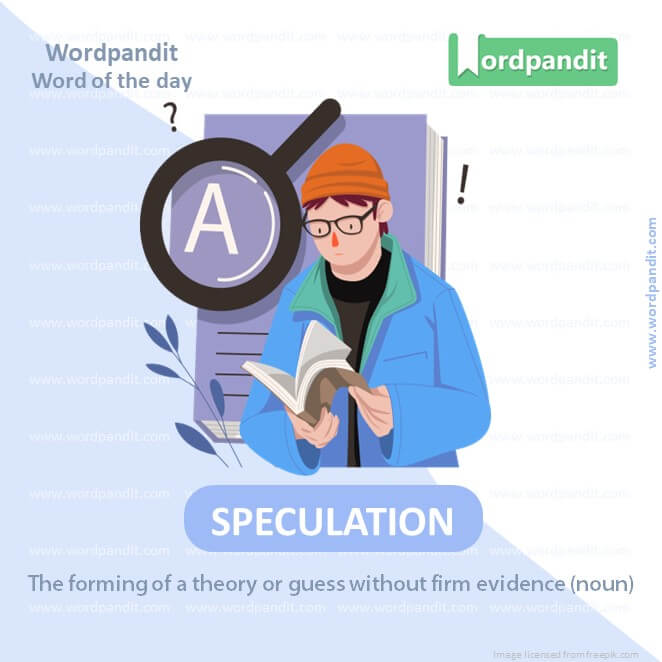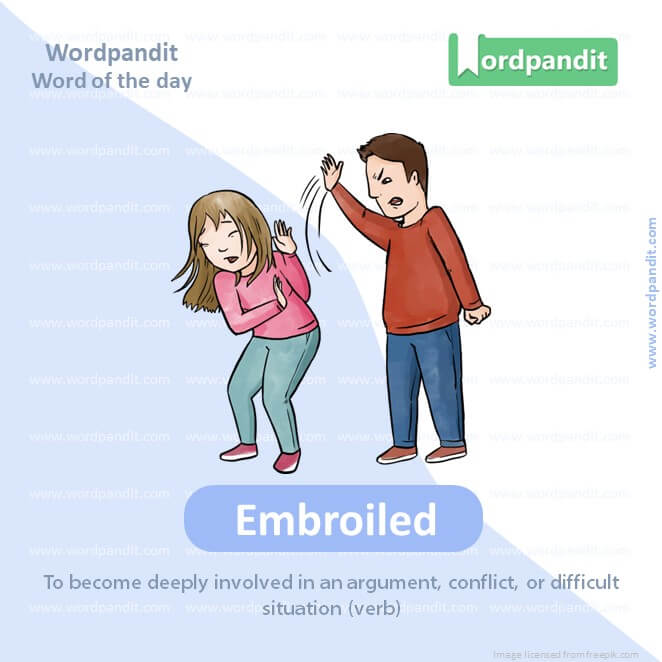Daily Vocabulary Words: Enhance Your Lexicon with Leading Newspapers & Publications
Welcome to the Daily Vocabulary section at Wordpandit!
Our mission is straightforward: to bring you essential vocabulary words featured in top newspapers and publications worldwide. By focusing on words you’ll encounter in renowned sources, we aim to help you enhance your vocabulary effectively and practically.
Our selection includes words from:
– The New York Times
– The Washington Post
– Scientific American
– BBC
– The Guardian
– Psychology Today
– Wall Street Journal
– The Economist
– The Hindu
– The Times of India
– The Economic Times
– Hindustan Times
– Live Mint
– The Indian Express
– And many more.
We are committed to your vocabulary development. Simply visit this section regularly and explore the daily posts. This is your go-to repository for commonly used words, providing significant practical benefits by familiarizing you with vocabulary from the leading publications listed above.
Make it a habit to visit our website daily and expand your lexicon with words from top newspapers and publications. (edited)

WORD-1: Delinquent
CONTEXT: There’s been widespread attention on Donald Trump’s asserting that he would refuse to defend NATO allies he considers “delinquent” and even saying he might encourage Russia to attack them.
SOURCE: New York Times
EXPLANATORY PARAGRAPH: Delinquent is like when you don’t do your chores and get into trouble. It means someone who does not follow the rules or is often naughty.
MEANING: A person, usually young, who behaves in a way that is against the laws or doesn’t do what they are supposed to do (noun)
PRONUNCIATION: dih-LING-kwuhnt
SYNONYMS: naughty, misbehaving, criminal, wayward, unruly, lawbreaking, offending
USAGE EXAMPLES:
1. The delinquent student skipped school again.
2. He was labeled a delinquent for his constant misbehavior.
3. Delinquent bills need to be paid immediately.
4. The group of delinquents was caught vandalizing the park.

WORD-2: Self-aggrandizing
CONTEXT: My point, rather, is that he often seems unable to tell the difference between self-aggrandizing fantasies and things that actually happened.
SOURCE: New York Times
EXPLANATORY PARAGRAPH: Self-aggrandizing is like when someone keeps saying they are the best at everything and always want to be the center of attention. It means trying to make oneself seem more important than they really are.
MEANING: Behaving or speaking in a way that makes oneself appear more important or grander than is the case (adjective)
PRONUNCIATION: self-uh-GRAN-diz-ing
SYNONYMS: boastful, bragging, self-promoting, self-important, egotistical, arrogant, conceited
USAGE EXAMPLES:
1. His self-aggrandizing speech annoyed everyone.
2. She has a self-aggrandizing habit of always talking about her achievements.
3. The self-aggrandizing leader took all the credit for the team’s success.
4. His self-aggrandizing behavior made him unpopular.

WORD-3: Repudiation
CONTEXT: Trump’s repudiation of NATO went down: He didn’t make a straightforward case, which would have been arguable, that we’re spending too much on defense while our allies are spending too little.
SOURCE: New York Times
EXPLANATORY PARAGRAPH: Repudiation is like when you say you don’t want to play a game anymore because you think it’s unfair. It means refusing to accept something or saying it’s not true.
MEANING: Rejection of a proposal or idea; denial of the truth or validity of something (noun).
PRONUNCIATION: re-pyoo-dee-AY-shun
SYNONYMS: rejection, denial, disavowal, renunciation, refusal, abnegation, contradiction
USAGE EXAMPLES:
1. The politician’s repudiation of the accusation was swift.
2. There was a strong repudiation of the unfair rules.
3. He faced repudiation from his peers for his controversial views.
4. The company’s repudiation of the claims hurt its reputation.
WORD-4: Corroborating
CONTEXT: There’s almost never any corroborating evidence, and it’s a good bet that very few of these stories are accounts of actual conversations.
SOURCE: New York Times
EXPLANATORY PARAGRAPH: Corroborating is like when you say you saw a rainbow and your friend also says they saw it too, proving you’re telling the truth. It means giving support or evidence to show that something is true.
MEANING: Providing evidence to support or confirm something (verb).
PRONUNCIATION: kuh-ROB-uh-ray-ting
SYNONYMS: confirming, supporting, verifying, validating, substantiating, affirming, upholding
USAGE EXAMPLES:
1. The witness’s statement was corroborating the suspect’s alibi.
2. Scientists are corroborating the theory with new data.
3. He had documents corroborating his story.
4. The evidence was corroborating the victim’s account of the events.
WORD-5: Arraignment
CONTEXT: There’s no way that police officers and court employees were “crying” and apologizing to Trump at his Manhattan court arraignment last spring.
SOURCE: New York Times
EXPLANATORY PARAGRAPH: Arraignment is like when you get called to the principal’s office to explain why you broke the rules. It means being formally charged with a crime in court.
MEANING: The act of calling someone before a court to answer a criminal charge (noun).
PRONUNCIATION: uh-RAYN-muhnt
SYNONYMS: indictment, charge, accusation, summons, prosecution, trial, hearing
USAGE EXAMPLES:
1. The suspect’s arraignment is scheduled for next week.
2. During the arraignment, he pleaded not guilty.
3. The judge explained the charges during the arraignment.
4. Her arraignment was postponed due to lack of evidence.

WORD-6: Speculation
CONTEXT: I haven’t seen many suggestions that he’s made bad decisions because his judgment is impaired; it’s almost all speculation about the future.
SOURCE: New York Times
EXPLANATORY PARAGRAPH: Speculation is like when you guess what’s inside a wrapped gift without opening it. It means thinking about what might happen or what something might be without knowing for sure.
MEANING: The forming of a theory or guess without firm evidence (noun)
PRONUNCIATION: spek-yuh-LAY-shun
SYNONYMS: guesswork, conjecture, surmise, hypothesis, theory, supposition, assumption
USAGE EXAMPLES:
1. There was a lot of speculation about the new teacher.
2. The speculation about the company’s future affected its stock price.
3. His disappearance led to wild speculation among the villagers.
4. The article was based on speculation rather than facts.
WORD-7: Piddled
CONTEXT: She’s piddled around hosting a conservative podcast.
SOURCE: New York Times
EXPLANATORY PARAGRAPH: Piddled is like when you waste time doing little, unimportant things instead of getting your chores done. It means spending time on small, unimportant tasks.
MEANING: Wasted time on unimportant activities (verb).
PRONUNCIATION: PID-uhld
SYNONYMS: dawdled, loitered, tinkered, fiddled, wasted, puttered, idled
USAGE EXAMPLES:
1. He piddled away the afternoon instead of doing his homework.
2. She piddled around the house, not accomplishing much.
3. They piddled with the gadgets instead of fixing them.
4. He piddled on his phone during the meeting.
WORD-8: Shattering
CONTEXT: Mr. Trump isn’t shattering a norm so much as taking things to a disquieting extreme.
SOURCE: New York Times
EXPLANATORY PARAGRAPH: Shattering is like when you drop a glass and it breaks into a million pieces. It means breaking something into many pieces or causing great shock and sadness.
MEANING: Breaking something into many pieces; causing great emotional distress (verb/adjective).
PRONUNCIATION: SHAT-er-ing
SYNONYMS: breaking, smashing, fracturing, devastating, destroying, crushing, wrecking
USAGE EXAMPLES:
1. The news of the accident was shattering for the family.
2. The vase fell, shattering on the floor.
3. Her shattering scream echoed through the house.
4. The shattering loss left him heartbroken.

WORD-9: Embroiled
CONTEXT: This could be especially timely considering the legal mess in which the family company has been embroiled of late.
SOURCE: New York Times
EXPLANATORY PARAGRAPH: Embroiled is like when you get into a big argument with your friends and everyone is upset. It means getting involved in a difficult or complicated situation.
MEANING: To become deeply involved in an argument, conflict, or difficult situation (verb)
PRONUNCIATION: em-BROYLd
SYNONYMS: involved, entangled, ensnared, caught up, implicated, enmeshed, mixed up
USAGE EXAMPLES:
1. She got embroiled in a family dispute.
2. The company was embroiled in a legal battle.
3. He found himself embroiled in controversy.
4. They became embroiled in a heated argument.
WORD-10: Tantalizing
CONTEXT: “The Apprentice,” the Supreme Court could be an even more tantalizing option.
SOURCE: New York Times
EXPLANATORY PARAGRAPH: Tantalizing is like when you smell yummy cookies baking but can’t eat them yet. It means something looks or smells so good that you really want it.
MEANING: Tormenting or teasing with the sight or promise of something unobtainable (adjective).
PRONUNCIATION: TAN-tuh-lye-zing
SYNONYMS: tempting, enticing, alluring, teasing, captivating, attractive, inviting
USAGE EXAMPLES:
1. The tantalizing aroma of fresh bread filled the kitchen.
2. She gave him a tantalizing glimpse of the gift.
3. The dessert looked tantalizing but was off-limits due to his diet.
4. The movie trailer was tantalizing, making everyone eager to see the film.
Vocabulary Words for IELTS'
Preparing for an esteemed examination like IELTS urges a diligent focus on ‘vocabulary words for IELTS’. These specific words, frequently prominent in IELTS examinations, play a vital role in expressing ideas effectively and articulately. To successfully conquer ‘vocabulary words for IELTS’, a strategic and focused approach is quintessential.
A fundamental step when learning ‘vocabulary words for IELTS’ is understanding these words in the context of use. For this, exposure to diverse resources like newspapers, journals, academic texts, and digital content is crucial. This engagement aids in understanding the nuances of these words, fortifying your preparation for ‘vocabulary words for IELTS’.
When tackling ‘vocabulary words for IELTS’, regular practice is the cornerstone of success. Consistent writing and speaking exercises help in embedding this vocabulary in your linguistic repertoire. Take situations or topics that commonly appear in the IELTS exam and practice crafting complex yet coherent sentences using these words.
In the journey to unfold ‘vocabulary words for IELTS’, making use of memory-enhancement techniques can orchestrate your success. Tools like flashcards and recall-based applications can significantly assist in retaining and reinforcing these words in your memory. Additionally, forming personal connections or stories with these words can greatly improve word recall.
Brevity is equally significant when preparing for ‘vocabulary words for IELTS’. Attempt to learn a limited number of words each day rather than tackling a large list all at once. This habit allows the brain adequate time to absorb and store these words securely, ensuring an effective learning experience.
In conclusion, the quest to master ‘vocabulary words for IELTS’ is an engaging dance of comprehension, practice, memory techniques, and thoughtful pacing. As you pirouette gracefully through these strategies, you’ll find communicating your IELTS responses with the right ‘vocabulary words for IELTS’ is less of a cliffhanger and more of an epic tale of language success.













